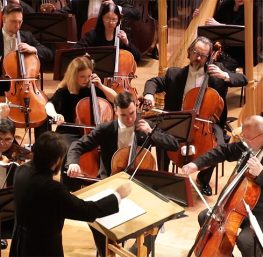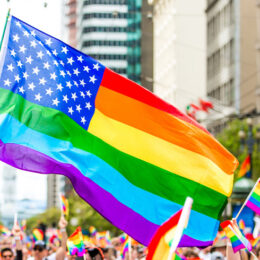Wall Street Opinion Journal Kenneth L. Woodward
The great surprise of yesterday’s papal election is that the new pope is no surprise. As the long-time Prefect of the Congregation for the Doctrine of the Faith, Cardinal Joseph Ratzinger was the best-known figure at the Vatican apart from John Paul II himself. In American political terms, his elevation to the papacy is much like a highly visible vice president replacing a president. Clearly, the conclave that elected him wanted continuity rather than change. That is the only surprise.
Like his predecessor, the new pope is a genuine intellectual. But where John Paul II was a professional philosopher, Benedict XVI is a theologian. And although the two men worked closely together, the differences showed.




Even non-Catholics and non-Christians must find the whole “changing of the guard” episode in Rome to be quite a spectacle: the pomp, the pageantry, the music … those hats!
I’m not sure a Broadway production of “Les Miz” could top the fanfare of it all. JPII understood the necessity of being part showman, I think, having been an actor and playwrite himself. He was this century’s “Rock Star Pope”, inciting near Beatles-level hysteria wherever he went.
I doubt Benedict XVI will have the same sort of charismatic ability to reach out and inspire the masses, even if he maintains the previous pope’s doctrines. I wouldn’t underestimate the usefulness of this ability, either. The previous Pope’s popularity was a huge influence in the solidarity movement in Poland. It also softened his hard-line theology with a human warmth and compassion that made him well-respected even with those who disagreed with him.
This Pope indeed has big shoes to fill.
Quite true, very large shoes.
I think we haven’t even begun to see Pope John Paul the Great’s legacy, now that I think about it. Sure lots of nominal Catholics opposed him, and now express great dismay at Pope Benedict’s election. However an entire generation of young people (figure ages 15-35) were deeply influenced by the late Pope. It will be interesting to see what happens as they become the priests, bishops, and theologians that shape the Catholic Church in the next 50 years.
For those who fear the new Pope, his selection of the name Benedict should be an encouraging sign. The last Pope Benedict was a peacemaker and bridgebuilder in the church and the new Pope Benedict has said his selection of that name was inspired by that fact. In his first few days he appears to be reaching out to disatisfied factions.
We should give the man a chance, a honeymoon if you will, and see what he actually does. I think it would be helpful if he would revisit certain Catholic church policies like birth-control and clerical celibacy, but these are not deal-breakers, in the overall scheme of things. Pope Benedict’s strong opposition to the death penalty suggests that he will maintain John Paul IIs articulation of a consistent ethic of life, and continue to be a voice for the poor and disadvantaged.
Young People & John Paul II
How did the secular/liberal press explain the demonstrated devotion of young people to John Paul II? Wasn’t JPII supposed to be this dour, repressive individual who refused to adopt the “modern” approach to personal morality? According to the reasoning of the liberal secular press, JPII’s stance should have repelled young people, not attracted them. I have heard mainstream media commentators assert with great confidence that the European Churchs are empty in Europe BECAUSE John Paul II and those who think like him won’t “modernize” —by which the commentators mean– compromise their principles. I think they have it backwards
Young people, like all people, are looking for eternal meaning, they don’t find that in the “church fad of the month.” I think young people were attracted to JPII because JPII made clear that he thought the young were important AND because he made clear that he did not represent the “church fad of the month” but something eternal.
From what I have read, those churhs in the United States which make the heaviest demands on their parishioners are exactly those churches which are growing and gaining members. Membership numbers is not a measure of spiritual quality but at some point if you don’t have enough parishioners to pay the mortgage on the building you have a problem. (I am not suggesting that everything good in a church is represented by the size and opulence of its buildling, I am aware that brave Christians in many country have no church buildling of their own, such as in China and Viet Nam.)
It is very clear that the “elevation” of Gene Robinson has caused dozens and dozens of individual episcopal congregations to pull away from ECUSA. A large Episcopal Church in my metropolitan area recently pulled out of ECUSA. Speaking in material terms only, it was a real loss. The congregation was large and financially sound.
I don’t think that there are enough active church members in the “gay” community to make up the difference in membership for ECUSA.